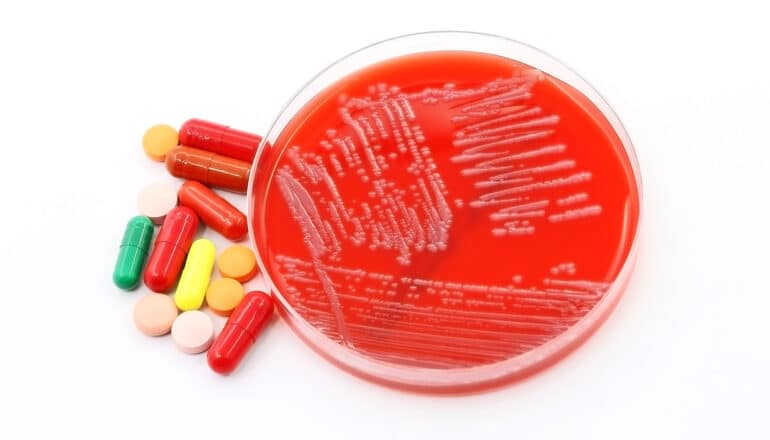Heart drug kills dangerous antibiotic resistant bacteria
- Fendiline, a heart drug previously used to treat arrhythmia, has been found to selectively kill antibiotic-resistant bacteria.
- The researchers identified a specific weakness in the lipoprotein trafficking pathway of the bacterium Acinetobacter baumannii, which is weakened in resistant bacteria.
- The study employed an entirely new strategy to target this vulnerability with fendiline, repurposing an existing drug for a new purpose.
- The discovery has potential for treating serious hospital-acquired infections, particularly in immunocompromised patients, and could lead to faster clinical trials and deployment.
- Fendiline selectively targets the specific bacterium, leaving healthy bacteria in a patient’s gut flora intact, making it a promising treatment option for antibiotic-resistant infections.

A new study addresses the growing global crisis of antibiotic-resistant infections.
Many of these drug-resistant bacteria are spread through hospitals, and there are few antibiotics available for treatment.
The study in Proceedings of the National Academy of Sciences (PNAS)xA0looks at a particular bacterium called Acinetobacter baumannii, which is highly infectious, spread mostly in hospitals, and typically infects immunocompromised patients.
The researchers employed an entirely new strategy to identify weaknesses specific to resistant bacteria and then target these weaknesses with an alternate drug.
They found that fendiline, a drug that acts as a calcium channel blocker and formerly used to treat heart arrhythmia, kills the bacterium by targeting the essential lipoprotein trafficking pathway, which is weakened in antibiotic resistant bacteria.
What the researchers say
“It’s critical that we find more and better therapeutics that can target these antibiotic-resistant infections which affect patients on ventilators, those with deep soft tissue infections, and the immunocompromised,” says Philip Rather, corresponding author on the paper and professor in the Emory University School of Medicine.
“This novel finding repurposes an existing drug, exploits a newly identified vulnerability in an antibiotic-resistant bacterium, and opens doors for developing new antibiotics targeting similar pathways,” says Jennifer Colquhoun, first author and research scientist at Emory.
Why it matters
- The discovery that fendiline can selectively kill drug-resistant bacteria suggests a fast-track potential for treating infections that are currently difficult or impossible to manage with existing antibiotics.
- Since fendiline is already FDA-approved, there is potential for quicker clinical trials and deployment in treating serious hospital-acquired infections, particularly in immunocompromised patients.
- The drug selectively targets the specific bacterium, leaving the healthy bacteria in a patients gut flora intact.
Source: Emory University
The post Heart drug kills dangerous antibiotic resistant bacteria appeared first on Futurity.
